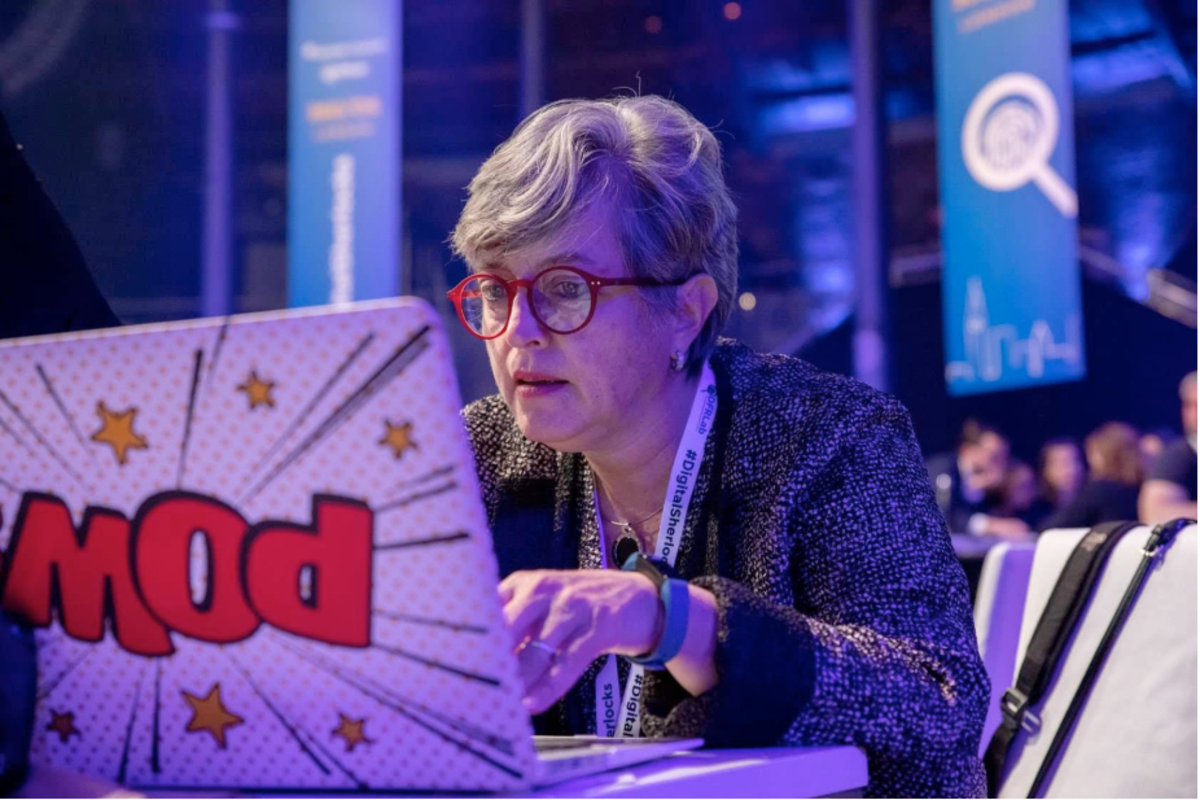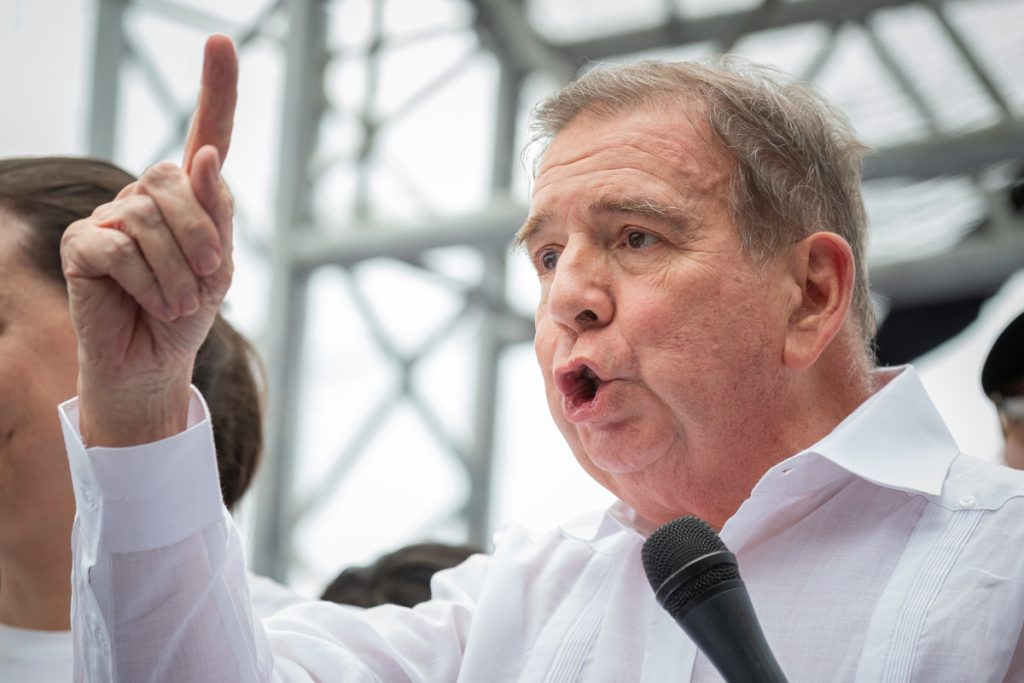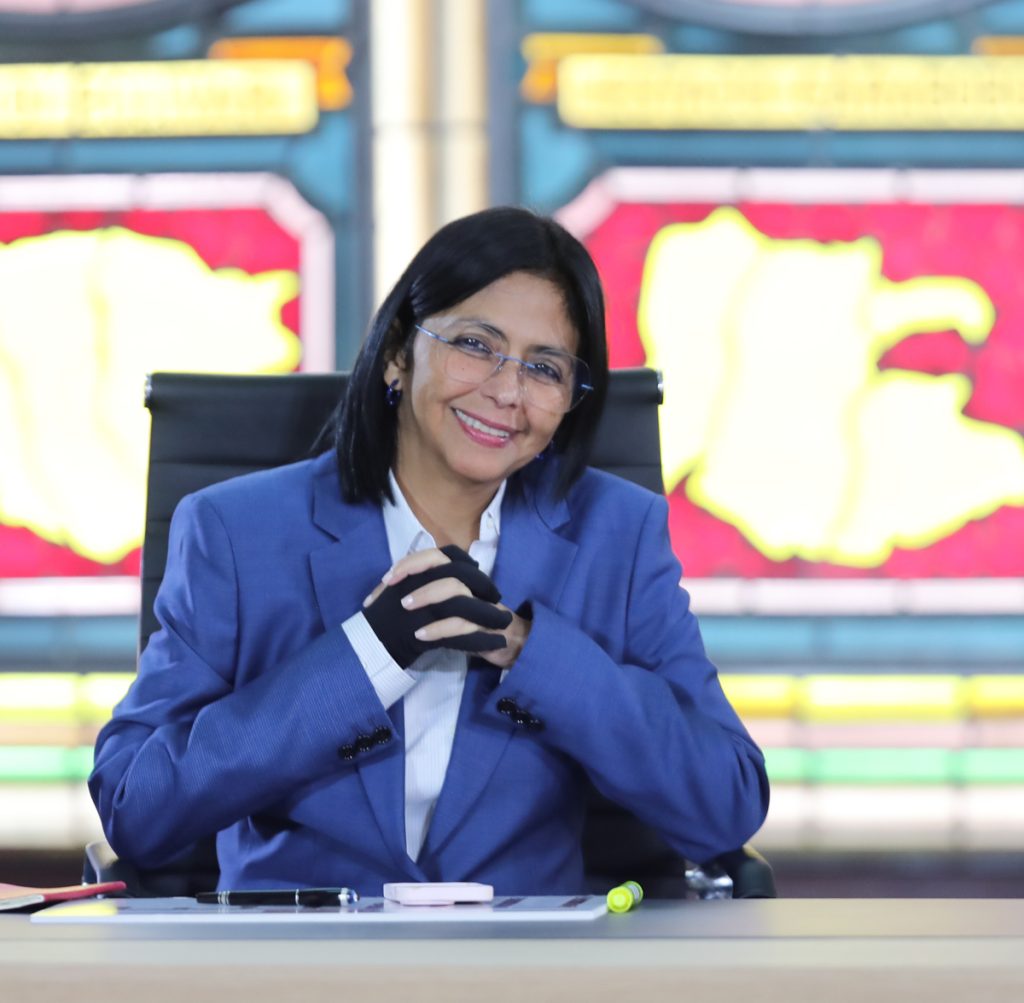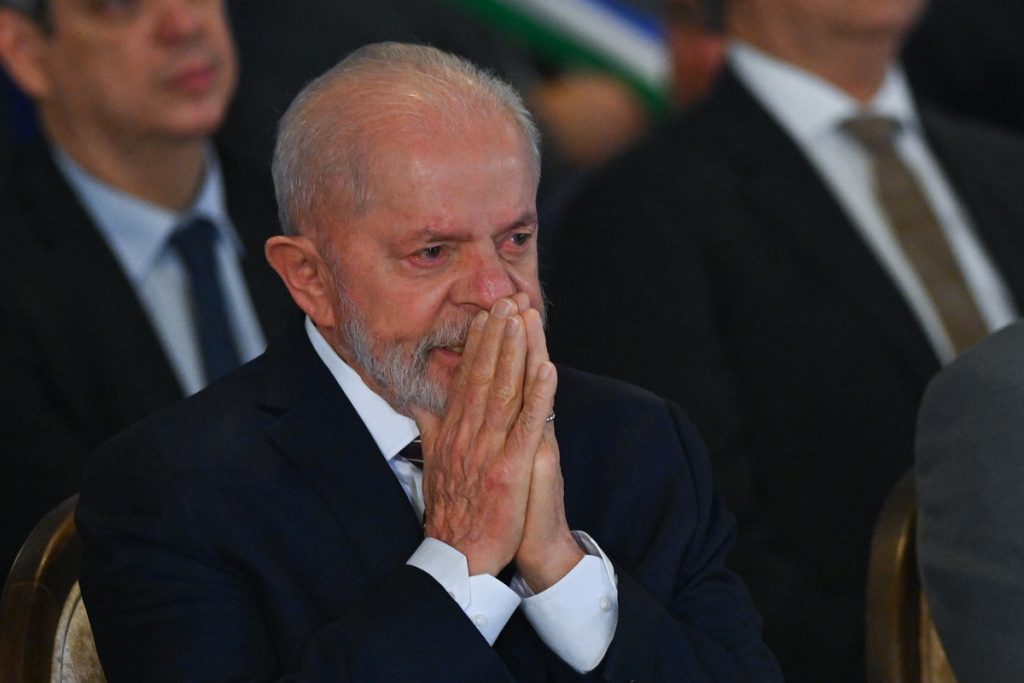Carmen Beatriz Fernández: The most likely scenario is that democracy will be rescued

Political consultant and academic Carmen Beatriz Fernández proposes two scenarios for Venezuela. One is that autocracy becomes consolidated and another is the beginning of the re-democratization of the country.
In a situation where the government does not have unanimous support from the international community, including its leftist allies Colombia, Brazil and Mexico, in addition to a more frontal position from Chile, and internally there is a conviction, thanks to the publication of the minutes on a website, that the elections of July 28 were won by Edmundo González Urrutia, the professor considers that the most probable thing is that the rescue of democracy will occur.
Such changes, explains the specialist in Political Campaigns, could be developed gradually. One option would be for President Nicolás Maduro to resign voluntarily and for Jorge Rodríguez, president of the National Assembly, to assume the Executive until January 10 while Parliament drafts a transition statute and an amnesty law. On January 10, if this were to happen, Fernández continues, González Urrutia would assume the presidency.
The second option for a redemocratization that the professor points out is more chaotic: “Mid-level military commanders would force the government out of power by force. That would lead to more chaotic scenarios. That could happen before January 10 or after. It would be much more difficult to create scenarios because when you enter into a dynamic of chaos, anything can happen.”

EFE photo
Following the July 28 elections, in which the result, according to Elvis Amoroso, president of the National Electoral Council, favored Maduro, several protests were recorded in the country which left 24 dead and 2,400 arrested of which 700 were transferred to Tocuyito and Tocorónwhere the president ordered the construction of maximum security prisons. A context in which there is fear among the population, but the hopelessness of 2018 is not perceived. Fernández believes that, despite the uncertainty, the situation is better in the sense that a year ago the country had a “stable dictatorship” and now there is an “unstable dictatorship.”
“There are people who value stability much more than democracy or freedom. They may be thinking or saying secretly that we are worse off now than we were a year ago. I am referring to everyone from commentators to important economic actors, the so-called bondholders, the people who lobby for the oil and financial issue in Venezuela,” explains the academic.
The government’s aggressiveness, he says, is due to the fact that they themselves are afraid and they are using terror to take advantage of it, “because they have been left very naked in relation to popular support. They have been left very naked not only before the opposition and the international community but, what is more serious, before the institutions that they thought they had tamed.”
Fernández is referring to the PSUV itself, the ruling party, or institutions such as the CNE or the FANB: “You have institutions, call it the Attorney General’s Office, the State bureaucracy, which are part of that collective certainty that Maduro lost the election and is failing to comply, which is why the opposition has been strongly appealing to the fifth article of the Constitution which says that sovereignty resides in the people. Vox populi, vox Dei (the voice of the people is the voice of God in Latin), an expression that expresses what shapes and forms the climate of opinion.”
Among Maduro’s recent moves is the appointment of close figures in his circle to key cabinet posts. Diosdado Cabello, first vice president of the PSUV and one of the most radical leaders of Chavismo, was named Minister of the Interior and Justice. He put Vice President Delcy Rodríguez in charge of the Ministry of Energy and Petroleum.
There have also been statements from the government trying to prove the falsity of the minutes, which have been quickly denied by experts or fact-checking sites.

EFE photo
For example, Colombiacheck He verified a statement by the Minister of Communication and Information, Freddy Ñáñez, in which he said that after subjecting 9,472 digital files corresponding to 30% of the minutes to “expertise”, it was found that “83% of these images do not have metadata, that is, (…) they went through editing software (…) they are not a faithful copy of the original”. The statement was also published by the Colombian influencer David Porras (@PORRASOPINION).
Freddy Ñáñez, Maduro’s Minister of Communications, said that the electoral records “have no legal weight” and that “they were only used to distract.”
However, the electoral minutes are the only means recognized by Venezuelan electoral legislation through which… pic.twitter.com/LEVBoda940
— Fake News Hunters (@cazamosfakenews) September 3, 2024
Colombiacheck He called Ñáñez’s theory false, arguing that the fact that the minutes do not have metadata does not prove manipulation: “This information is easily erased, in some cases for security reasons. However, the minutes have their own elements to corroborate their authenticity, even encrypted, such as a hash, a QR code and a digital signature.”
For Fernández, the radicalization, contradictions and unsubstantiated statements in the government are due to the fact that they are not in a comfortable situation. They do not inspire pity, he emphasizes, but “they carry their own procession.” He explains that to endure a lie it is necessary to tell bigger and bigger lies, however, in society there has been installed “the certainty of a great truth, and it is the great truth that has been seen firsthand by at least half a million Venezuelans. That has an impact in terms of public opinion that is devastating.”
The easiest solution, says the professor, is for Maduro to allow a transition, something that, she believes, is still possible if the president changes his mind. Citing an interview with historian Margarita López Maya with this newspaper in which she pointed out that it is not possible to hold on for so long on bayonets, Fernández recalls that governments, even dictatorial ones, need legitimacy: “Even dictatorships need popular support to maintain themselves, and Maduro has lost that, which makes him tremendously fragile because, as López Maya said, you cannot hold on only on bayonets.”
Fernández believes that today Chavismo is a very diminished movement. It was already, he emphasizes, in decline. What happened on July 28, he says, must be of capital importance to the Chavista bases because a position that the late president Hugo Chávez defended for years is changing: popular strength. “You are sending another signal that is completely different.” On the opposition side, he continues, there was a shock prior to July 28, the primaries of October last year, because they generated movement and reorganization among the democratic parties: “There were realignments that occurred, I think, harmoniously or with relative harmony throughout the campaign.”
Carmen Beatriz Fernández: «Now there is the possibility of having independent external audits»
Carmen Beatriz Fernández highlights the democratic culture that Venezuelans demonstrated on July 28. Despite the obstacles, years of abuse by those in power and attempts to discredit the vote, there was, she says, a “very beautiful and invigorating act for Venezuelan democracy.”
“Venezuela is much closer to a perfect autocracy. However, what we saw in Venezuela, both at the end of the campaign and on election day, was a people willing to participate, the strength of collective action, coordinated action, a deeply rooted political culture,” describes the professor. And she adds: “People who got up in the early hours of Friday when the tables were set up. That tells us about a collective ambition.”
He also highlights the importance of publishing the minutes: he assesses this strategy as a very positive by-product that has marked a new level with respect to the defense of the vote in authoritarian regimes. “Now there is the possibility of having independent external audits, such as that of the Colombian MOE (Electoral Observation Mission) or that of the Washington Post. A lot of academics have presented papers on the election based on the strength of the data.”

EFE photo
Regarding the international scenario, the academic believes that Presidents Gustavo Petro and Luiz Inácio Lula da Silva have tried to convince Maduro that he can have a dignified exit “from this puzzle he got us into, but so far he has not been convinced.”
“They are trying to find a time when the possibility of negotiations is not completely closed. They are trying to convince Maduro, which is still the easiest thing to do today, because the other option is a much more chaotic transition, which is what nobody wants,” he argues.
Regarding the lukewarmness of Russia and China in defending the president, Fernández recalls that, for example, the Kremlin has its own problems, quite complex, with the war in Ukraine, so Venezuela is not its priority. In addition, he points out, Maduro’s position is difficult to defend: “We can talk about many things, but in the end the clear fact is that you called an election and lost it, not by 20,000 votes but by 4 million votes. That has become clear to your allies and, without a doubt, to your adversaries. Who is going to defend you in that condition?”
Independent journalism needs the support of its readers to continue and ensure that uncomfortable news that they don’t want you to read remains within your reach. Today, with your support, we will continue working hard for censorship-free journalism!
